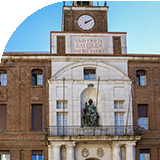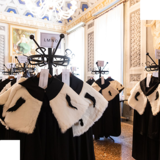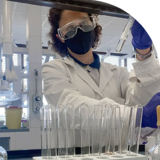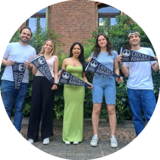Useful Tools
Visita anche

Unicatt
Università Cattolica: the university, programmes, admission and faculty

Academic Staff
Profile, teaching, announcements

Research
Scientific research, projects, structures

International students
Study at Università Cattolica
World Endeavors
| Option 1 | Option 2 | Option 3 | |
| 2 weeks | 14 - 28 July | 28 July - 11 August | 11 August - 25 August |
| 3 weeks | 14 July - 4 August | 28 July - 18 August | 11 August - 1 September |
| 4 weeks | 14 July - 11 August | 28 July - 25 August | 11 August - 8 September |
Often considered Africa’s adventure capital, Livingstone is a community filled with kind locals, unique cultural activities.
Located less than 8 kilometers from the world-renowned Victoria Falls, Livingstone regularly welcomes backpackers of all backgrounds, drawn to the exciting adventures. While establishing itself as the backpacking hub of Zambia, the Livingstone community honors its culture in beautiful ways.
Zambian culture celebrates a distinctive blend of traditional and modern customs, making for some truly unique forms of art, music and food. Visit a local restaurant to try Michopo, a roasted meat dish commonly found at bars and served with chili, onions and vegetables. Journey through local markets to see beautiful pieces of pottery, art, and basketry, and support local businesses by filling your suitcase with some life-long souvenirs! Or, snack on some Vitumbuwa – a fried dough dish that makes a delicious afternoon snack – before visiting the Livingstone Museum, the oldest museum in Zambia.
You’ll be staying in the heart of Livingstone at a private volunteer house within the popular and vibrant Victoria Falls Backpackers Zambia. This comfortable backpackers’ is 15 minutes from Victoria Falls and is a 5 minute walk from Livingstone’s town center which has many stores and a great selection of cafes and restaurants for you to explore on the weekends. You will have access to a swimming pool, lounge, bar, fire pit area and even a climbing wall! These communal areas offer the perfect space to get to know other volunteers and relax at the end of the day.
Bedrooms are dormitory style with bunk beds and shared bathroom facilities, as well as daily housekeeping. The staff can share knowledge about the area and are happy to help organize river cruises, canoe safaris, and trips to Chobe National Park, just across the border in Botswana.
3 meals included in weekdays. At weekends you will have access to the kitchen to make your own food. WiFi is available, you can also purchase a SIM card with data bundles if you wish.
The costs vary depending on the duration of the volunteer project.
For destinations in partnership with World Endeavors, 15 scholarships of €1,350 each are available.
Work alongside local teachers in rural primary schools that are overwhelmed with children wanting to learn. This is an amazing opportunity to give individual attention to children who really need it, gain valuable volunteer teaching experience abroad.
You will spend your mornings at a primary school in one of Livingstone’s rural communities, supporting a local teacher in their classroom. During your stay, you will remain with the same class so that you can get to know the children, identify problem areas, and provide individual support to the students.
After-school programs help a great deal in the development of children, in their motor skills, reading, literacy, and creative development. Part of your volunteer work will include teaching children the alphabet, phonics, spelling, pronunciation, and general reading and comprehension skills. You will also conduct and develop outdoor games and art projects and just have some fun interacting with the kids.
We also offer an adult literacy program. Improving adult literacy subsequently improves the chances of employment. If you would like to, you will get a unique volunteer opportunity to gain first-hand insight into a different culture – and to make new friends from the community – by facilitating structured lesson plans and tests in our adult literacy course. A certificate is issued to students upon successful completion of the course, and they are really invested in their ongoing education.
Volunteers contribute to the environmental conservation movement through sustainable building using EcoBricks, upcycling initiatives, direct clean-up action, and awareness workshops.
An EcoBrick is a plastic bottle that is stuffed with plastic pollution and turned into a solid ‘brick’. Volunteers have used EcoBricks to build a compost bin, chicken coop and piggery, an ablution block, and benches for schools. We also run a swap shop with school students to encourage them to get involved. The students can swap EcoBricks they have made for stationary, toys, and football jerseys.
Using our environmental education curriculum, volunteers deliver workshops to schools, community groups, women’s groups, and local businesses on the importance of waste management and why environmental conservation is important. Building awareness is critical for starting the journey of minimizing waste and can kick-start innovative and practical ideas from local community members that can help get rid of plastic in a constructive and sustainable way. Your workshops will introduce the issues and possible solutions to land waste, water waste, and how waste is affecting people’s health.
Università Cattolica del Sacro Cuore uses cookies on this site. Cookies are used to allow the enjoyment of our services and to optimize the user experience. Only technical cookies are active. For more information, refer to the Information on the processing of navigation data and cookies
Ok